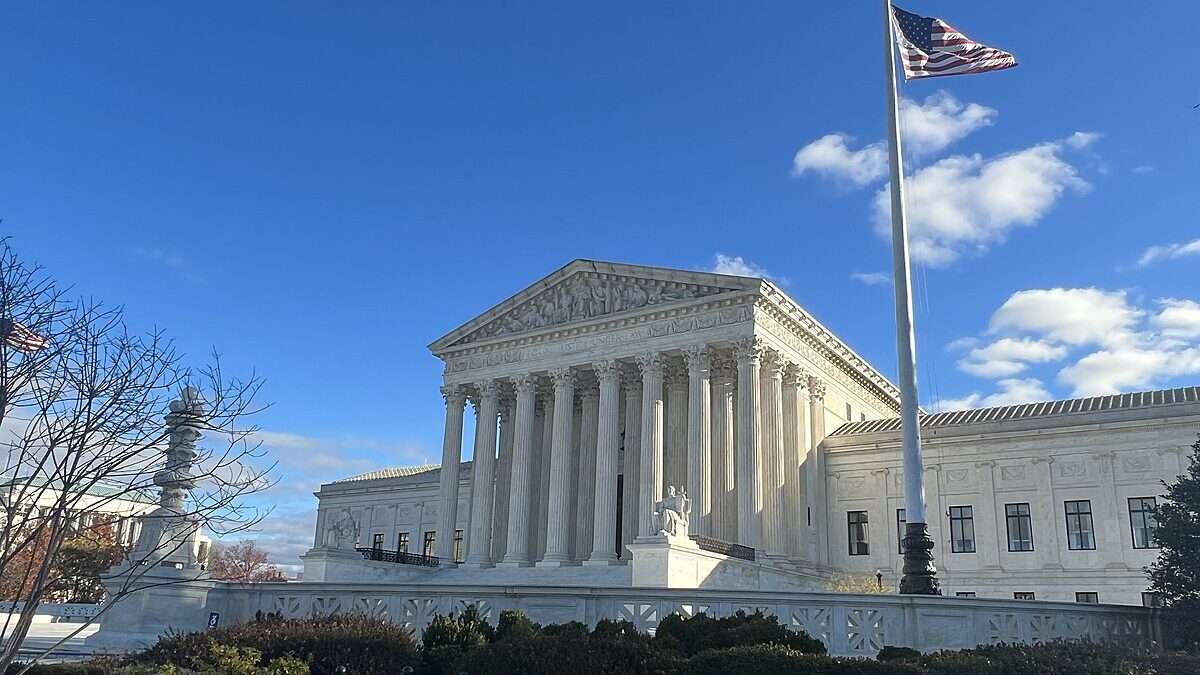
Donald Trump’s election has produced one unexpected benefit: his opponents are now making freedom-of-conscience claims that parallel arguments Alliance Defending Freedom has made in courts for years.
Opponents of President-elect Trump are saying they can’t in good conscience do business that helps Trump and his supporters, because it would violate their deeply-held beliefs to do so. That’s how we’ve advocated for Elane Photography, Arlene’s Flowers, Hands On Originals, Brush and Nib Studio, and other cases, including the latest case for Telescope Media Group in Minnesota.
Trump’s upcoming inauguration has brought forth freedom-of-conscience objections that add to other ones from the past year. Phoebe Pearl, a dancer with The Rockettes, and Jan Chamberlain, a singer with the Mormon Tabernacle Choir, have refused to perform in the Inauguration Ceremony because of their opposition to the president-elect and his policies. CNN reports that Chamberlain wrote she could “never sing for [Trump],” because that would be like “endorsing tyranny and fascism” and “throwing roses to Hitler.”
Excuse Me, Your Double Standard Is Showing
The inauguration is also bringing forth freedom-of-conscience objections from homeowners in Washington, D.C., who are refusing to rent their homes to the Trump supporters coming to see him get sworn in as president. D.C. residents voted 91 percent in favor of Hillary Clinton. Many thought they could make some money renting their houses via Airbnb to Clinton supporters coming to town Jan. 20. But then she lost the election, and that changed the market for short-term housing rentals.
Clinton’s election defeat caused massive cancellations of those Airbnb reservations. But now the homeowners are receiving requests to stay from Trump supporters, and these landlords believe that having Trump supporters in their homes would violate their conscience. The Huffington Post explains the angst suffered by these progressive homeowners:
But some individuals who had planned to post their D.C. area homes on Airbnb said they are feeling conflicted about renting to or sharing their place with people who voted for Trump.
“I have a visceral reaction to the thought of having a Trump supporter in my house,” said Lobna, who had planned to rent out a room in the apartment she shares with two roommates. All three of them are Clinton supporters.
“No amount of money could make me change my mind,” she said. “It’s about moral principles.”
Maybe Freedom Of Conscience Matters, After All
Perhaps they don’t know that they will violate the District of Columbia’s anti-discrimination law if they refuse to rent to Trump supporters. D.C. Code § 2-1402.21(1) makes it unlawful “to interrupt or terminate, or refuse or fail to initiate or conduct any transaction in real property… based on … political affiliation.” So maybe the ADF freedom-of-conscience cases have a point—like protecting the right of everyone to live according to their beliefs without suffering coercion or punishment from the government.
The freedom-of-conscience conflicts triggered by the Inauguration follow a series of similar events that occurred during the presidential campaign last year and the aftermath of Trump’s election last November. Last June, Buzzfeed turned down money from the Trump campaign to broadcast his campaign ads because they opposed his political message. Buzzfeed CEO Jonah Peretti wrote, “We certainly don’t like to turn away revenue that funds all the important work we do across the company. However, in some cases we must make business exceptions: We don’t run cigarette ads because they are hazardous to our health, and we won’t accept Trump ads for the exact same reason.”
After the election in November, Sophie Theallet, a French designer who created dresses for Michelle Obama, said in an open letter that she could not in good conscience design dresses for Melania Trump because the beliefs of Donald Trump “are incompatible with the shared values we live by.”
Must We Serve Everyone? Even Trump Supporters?
Also after the election, Matthew Blanchfield, who runs an internet marketing business named 1st in SEO in Albuquerque, New Mexico, recently wrote that “if you are a Republican, voted for Donald Trump or support Donald Trump, in any manner, you are not welcome at 1st in SEO and we ask you to leave our firm.” Why would he turn down paying customers and maybe lose valuable employees? KOB Television News wrote that “Blanchfield said he has a moral obligation to stand up for what he believes is right and against injustice.” (Obviously, he did not see the New Mexico Supreme Court’s decision in Elane Photography v. Willock that he must surrender his beliefs at the marketplace gate and serve everyone, because that is the “price of citizenship”).
At the same time, the owner of a propane company in Skowegan, Maine, Michael Turner of Turner LP Gas, refuses to sell gas to Trump supporters to heat their homes. Turner has recorded a voice message on his answering machine in which he says, “Thank you for calling Turner LP Gas. If you voted for Donald Trump for president, I will no longer be delivering your gas. Please find someone else.”
And the ADF cases have consistently made much more limited freedom-of-conscience arguments than the Trump opponents have. The people in the ADF cases create expression for their business, like photographs, videos, calligraphy, T-shirts, floral arrangements, and they object to telling stories or creating messages they disagree with. Here, only Buzzfeed, and the women with the Rockettes and the Mormon Tabernacle Choir, can argue that their sole objection is to communicating pro-Trump messages. The rest of the examples stretch the boundaries of their beliefs far beyond what any ADF client has argued. The ADF clients and their businesses serve all customers, regardless of their beliefs, race, or sexual behavior. What they object to is creating messages that conflict with their beliefs on marriage.
A Good Time To Reevaluate Freedom Of Conscience
So, Trump opponents, now might be a good time to re-examine your dismissive opposition to ADF cases protecting business owners’ right to operate according to their conscience. Here is the brutal reality that the framers of the Constitution understood: Government operates by coercion. Many times, we want the government to use its coercive power because it promotes ordered liberty for everyone. So when the police arrest drunk drivers, thieves, and other criminals, we all benefit.
But government can misuse its coercive power. That is why the framers of the Constitution gave us a Bill of Rights that includes a First Amendment to protect us from the government’s coercion when it involves our beliefs and expression. It is a laudable goal to eliminate discrimination, but that goal does not override or nullify the Constitution’s protection of a person’s right to speak or not to speak.
Therefore, don’t think about these freedom-of-conscience cases in terms of, “I would have taken the photos of the same-sex wedding, or baked the couple a cake, or arranged their flowers.” That isn’t the point. Instead, think of a politician—especially one you don’t favor—taking office with the power to enforce anti-discrimination laws that compel people (like you) to create and communicate viewpoints they deeply oppose. This is political reality: People you agree with are not always going to be in power. That is why we must defend the rights of everyone, including those we oppose, to express their ideas free of governmental punishment.
Because if the government can punish them, the government can punish you. If we take away their rights, then none of us are protected. The Constitution protects all of us, and that is why you should want Arlene’s Flowers, Masterpiece Cakeshop, Brush and Nib Studio, Telescope Media Group, and others like them to be able to conduct their businesses according to their beliefs.









